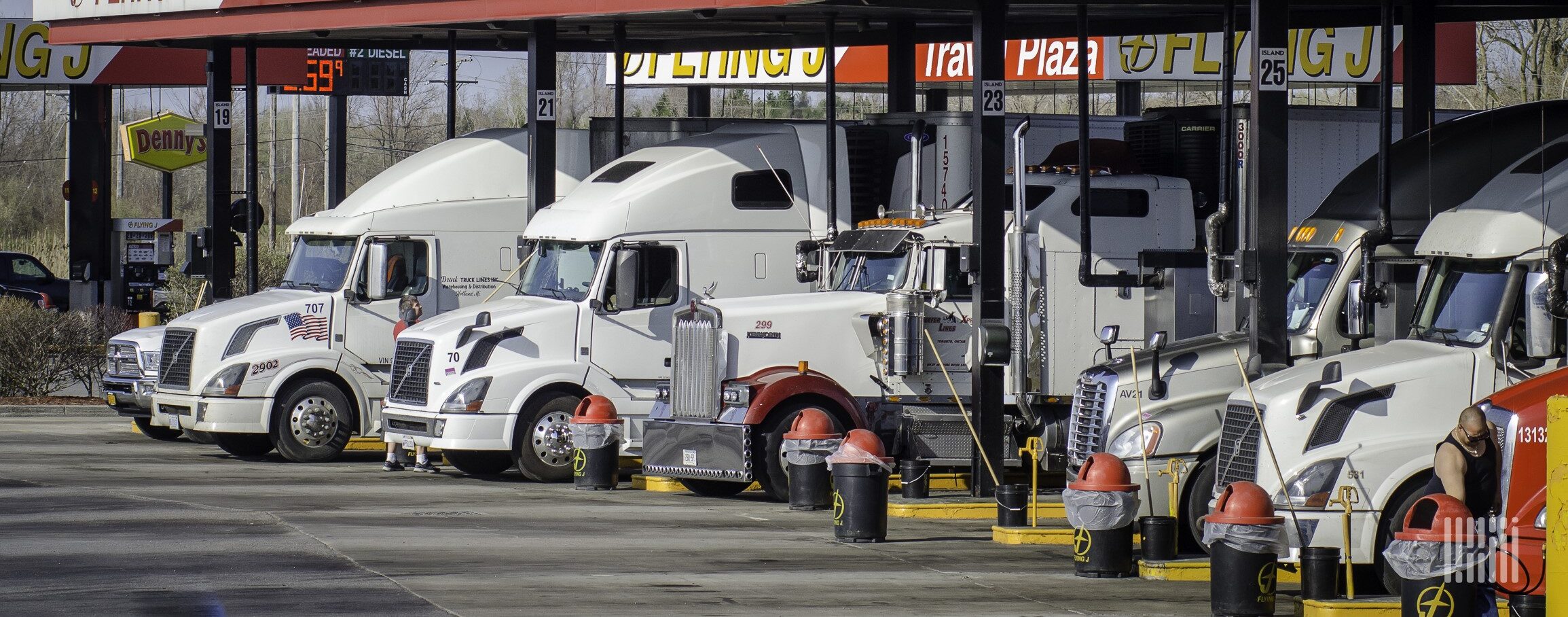Managing a fleet of vehicles can be a complex and costly endeavor, especially when it comes to reducing fleet costs. Implementing a fleet fuel management system offers a strategic approach to cutting those costs and improving operational efficiency.
In this article, we’ll explore proven strategies and features of these systems that can result in significant savings for your company. Whether you have a small fleet or manage hundreds of vehicles, these fleet management fuel consumption tips can make a difference in your bottom line.
And when you’re finished reading, check out the other articles in our ‘Fleet fuel management’ series:
- 7 ways fleet owners can conserve fuel
- How to save money with a fleet fuel management system
- Best fuel management system for fighting fuel card fraud
What is a fleet fuel management system?
A fuel management system for fleets tracks fuel consumption for a group of vehicles. It collects data on how much fuel each vehicle uses, where it’s filled up, and other metrics. This information helps companies monitor spending, improve efficiency, keep up with fleet maintenance, and increase cost savings.
Fleet fuel management solutions often use software and hardware components like GPS and cost saving fuel cards. These systems can also integrate with other software for reporting and analysis. Overall, fuel solutions aim to improve fleet operations by optimizing the fuel usage of fleet drivers.
How fleet fuel management software works
First, GPS units are installed in each vehicle to track location and mileage. Fleet fueling cards or RFID tags are provided to drivers for fuel purchases. When fuel is purchased, the transaction data is sent to a central software system. This includes details like amount of fuel, cost, and location.
The software then analyzes this data, offering fleet optimization insights into fuel consumption rates, idle time, and driving behavior. Managers can set up fuel monitoring alerts for unauthorized purchases or vehicles that are using fuel inefficiently. Fuel analysis reports can be generated to assess overall fleet performance, helping companies make data-driven decisions to reduce fleet costs and increase fuel optimization.
The system can also integrate with maintenance software for greater fuel cost management. This helps in scheduling timely tune-ups, further optimizing fleet efficiency. Some systems even offer eco-driving modules that coach drivers on fuel-efficient driving habits in real-time for more sustainable transport. Overall, the aim is to provide a comprehensive overview of fuel usage across the fleet for cost reduction.
11 ways a fleet fuel management system can save you money
A fleet fuel management system offers multiple ways to save money through cost-effective fuel usage and operational improvements. Here are some detailed cost strategies to maximize fleet fuel savings:
- Reduced idle time: The system can identify vehicles that idle excessively, wasting fuel. Managers can then take corrective action to reduce fleet expenses.
- Optimized routing: GPS tracking helps identify the most fuel-efficient routes, reducing both fuel consumption and time on the road.
- Fraud prevention: Alerts can be set for fueling outside approved locations or times, preventing unauthorized use of company resources.
- Volume discounts: Tracking overall fuel usage can help negotiate bulk fuel purchase discounts with suppliers.
- Driver behavior monitoring: The system can flag aggressive driving patterns like rapid acceleration to improve fleet fuel efficiency.
- Preventive maintenance: Integration with maintenance software helps schedule timely vehicle servicing, ensuring optimal fuel efficiency.
- Real-time tracking: Immediate data on fuel usage allows for quick adjustments to driving or operational strategies, saving money in the long term.
- Fuel card control: Limiting the type and amount of fuel that can be purchased helps avoid unnecessary premium fuel purchases.
- Reporting and analytics: Detailed reports make it easier to identify trends, set benchmarks, and implement policies for better fuel management.
- Improved regulatory compliance: Meeting emissions standards and other regulations can prevent costly fines and legal issues for overall fleet cost reduction.
- Driver training: Data can be used to create targeted driver training programs focused on fuel-efficient driving techniques.
These fleet benefits and features can result in significant cost savings for companies struggling with how to reduce fleet fuel costs.
How to pick a fuel management system for fleets
Selecting the right fleet fuel management system is crucial for optimizing fuel usage and reducing operational costs. Here are some key factors managers should consider when making a choice:
- Objectives: Know what you aim to achieve, such as cost reduction, efficiency improvement, or regulatory compliance.
- Scalability: Choose a system that can grow with your fleet size, offering flexible features for future needs.
- Compatibility: Ensure the system integrates well with existing software and hardware like GPS or maintenance software.
- Real-time monitoring: Opt for systems that offer real-time data for immediate decision-making and expense control.
- Data analytics: Strong reporting and analytics capabilities can provide deeper insights for long-term expense reduction planning.
- User experience: A system with an intuitive interface is easier for staff to use, ensuring better data accuracy.
- Security: Check the system’s security measures to protect sensitive company and vehicle data.
- Budget: Compare upfront costs, monthly fees, and potential ROI to find a system that fits your budget.
- Customer support: Reliable customer support is crucial for troubleshooting and system updates.
- Testimonials and reviews: Look for customer feedback and case studies to gauge the system’s effectiveness.
- Compliance: Ensure the system helps you comply with relevant local, state, and federal regulations.
- Pilot testing: Conduct a pilot test to validate the system’s effectiveness before full implementation.
By considering these factors carefully, managers can pick a fleet fuel management system that best suits their company’s needs.
Reduce expenses with an effective fuel management solution
Fleet manager training may highlight basic fuel management tips, like issuing fuel cards, for instance, but you can do more. With an advanced fuel management system, you can take proactive steps to become more fuel efficient and reduce overall fleet expenses. Using the tips outlined above, you can soon be on your way toward higher-performing, more efficient fleet operations.
FAQ
To monitor fleet fuel consumption, you can use a fleet fuel management system that combines GPS tracking and fuel cards. This provides real-time data on each vehicle’s fuel usage, location, and associated costs.
The cost of a fleet management system can vary widely, depending on features and scale. Prices can range from a few hundred dollars per vehicle to several thousand for advanced systems.
To start fleet management, begin by defining your objectives like cost reduction, efficiency, or compliance. Then, research and select a fleet management system that aligns with your goals and fleet size.
Sign up for a FreightWaves e-newsletter to stay informed of all news and trends impacting supply chain careers and operations.


